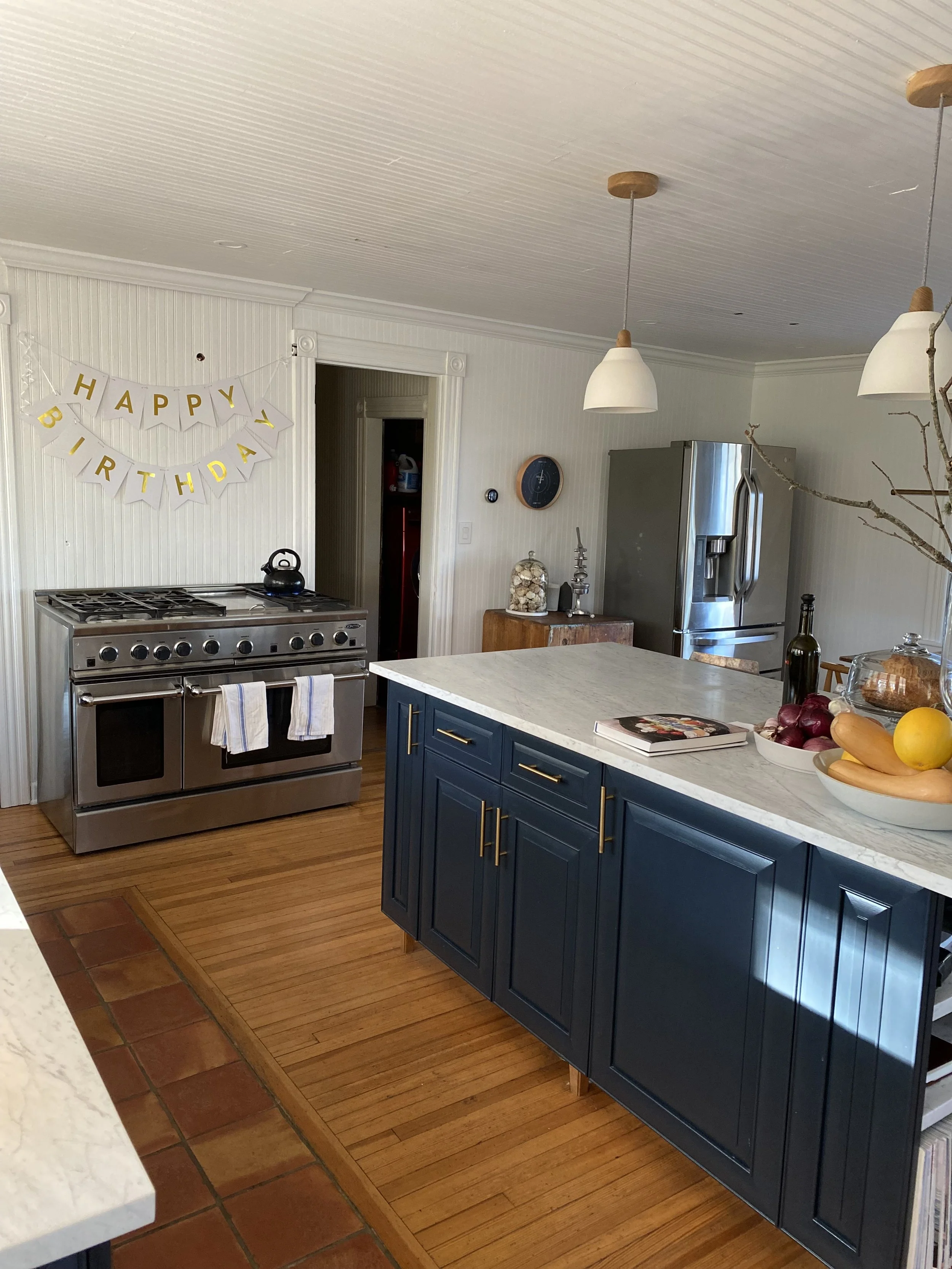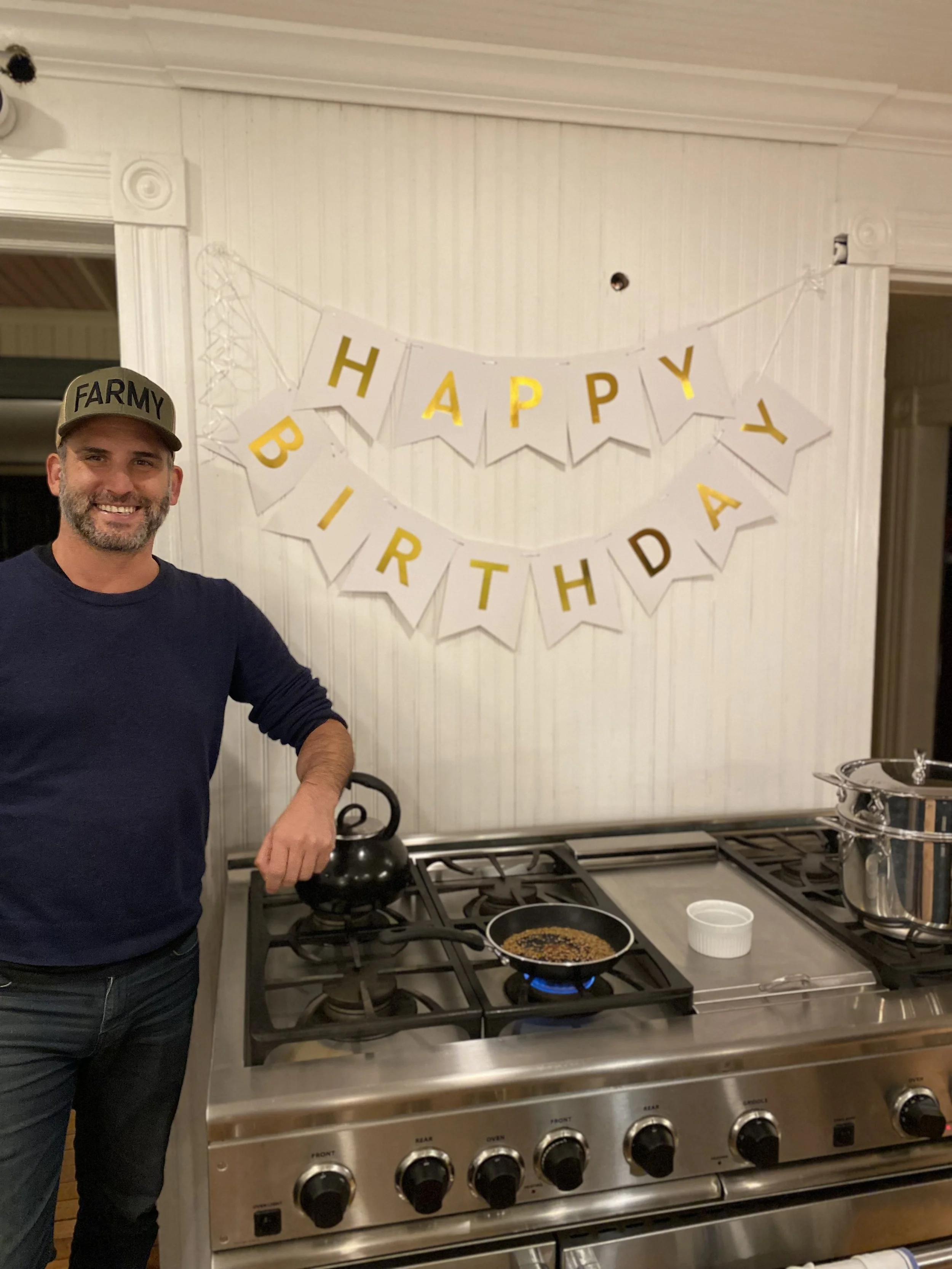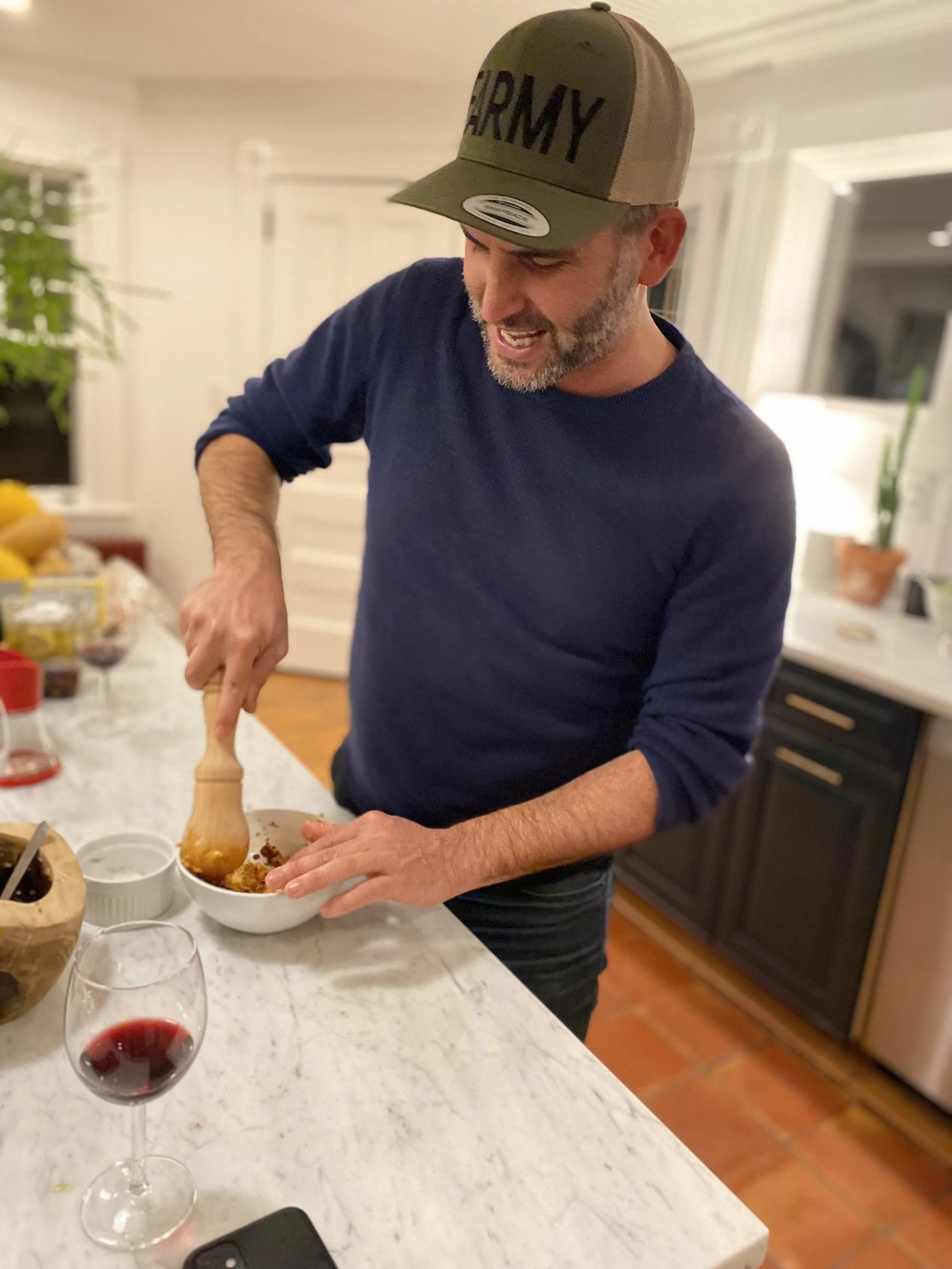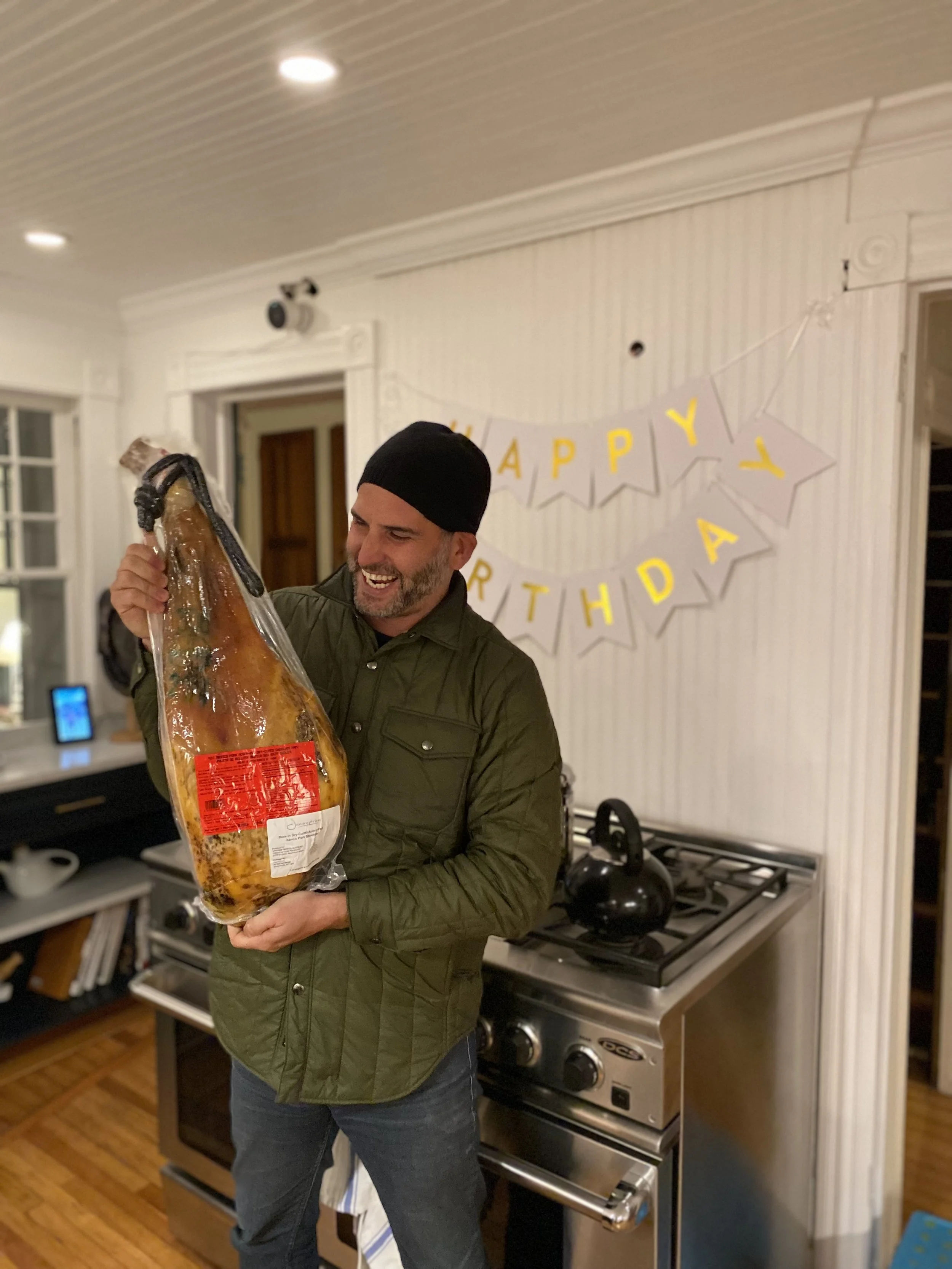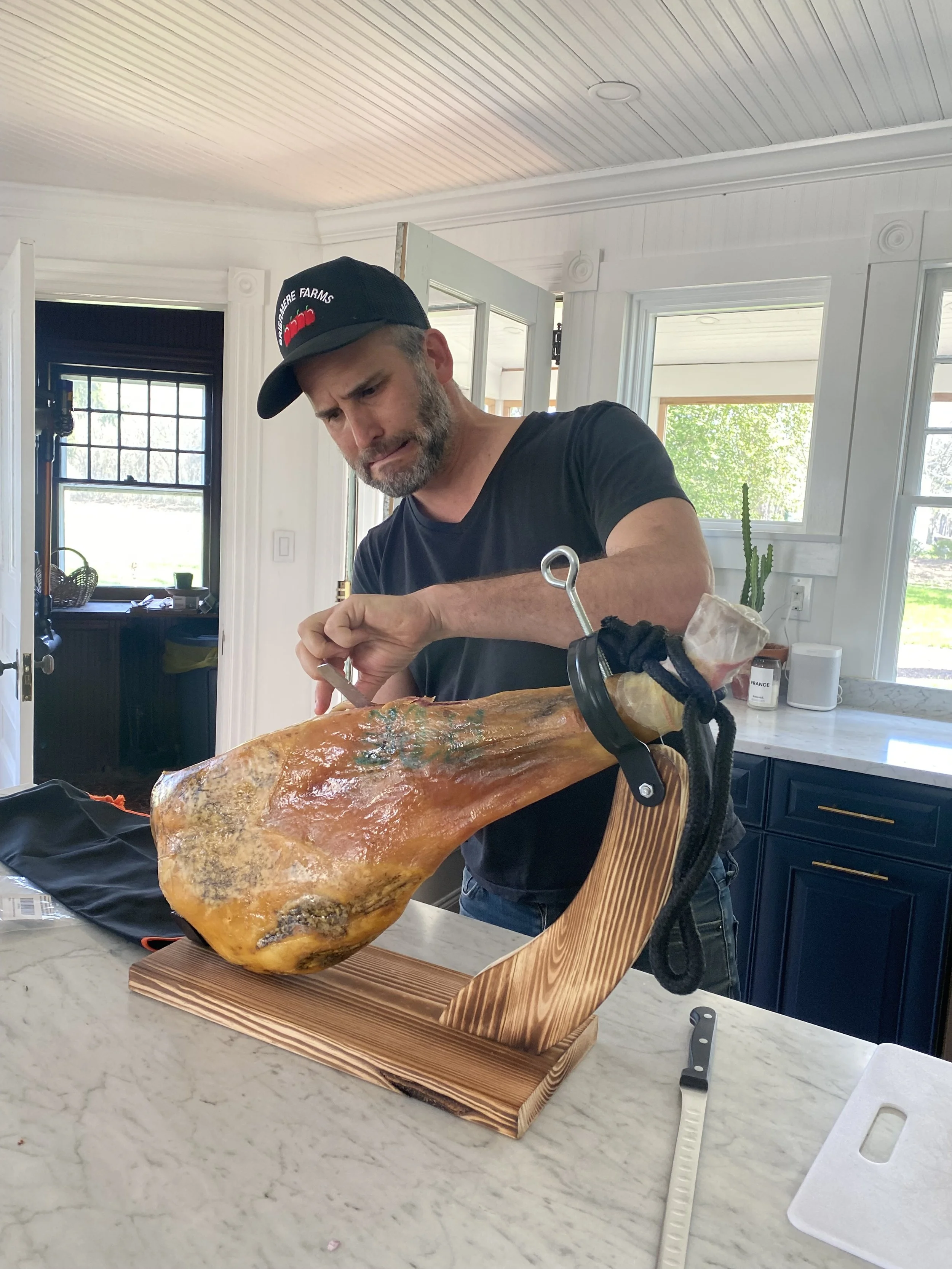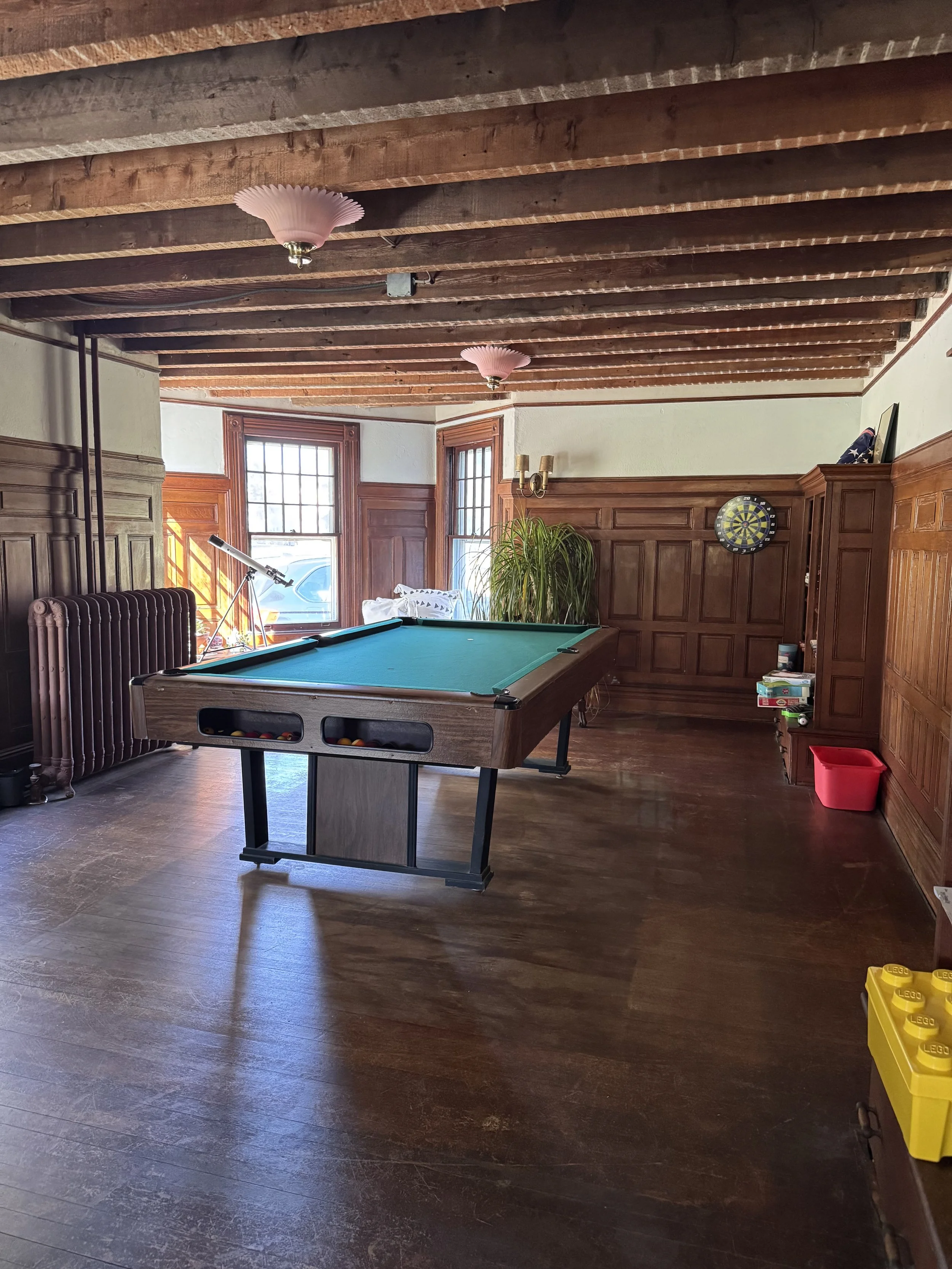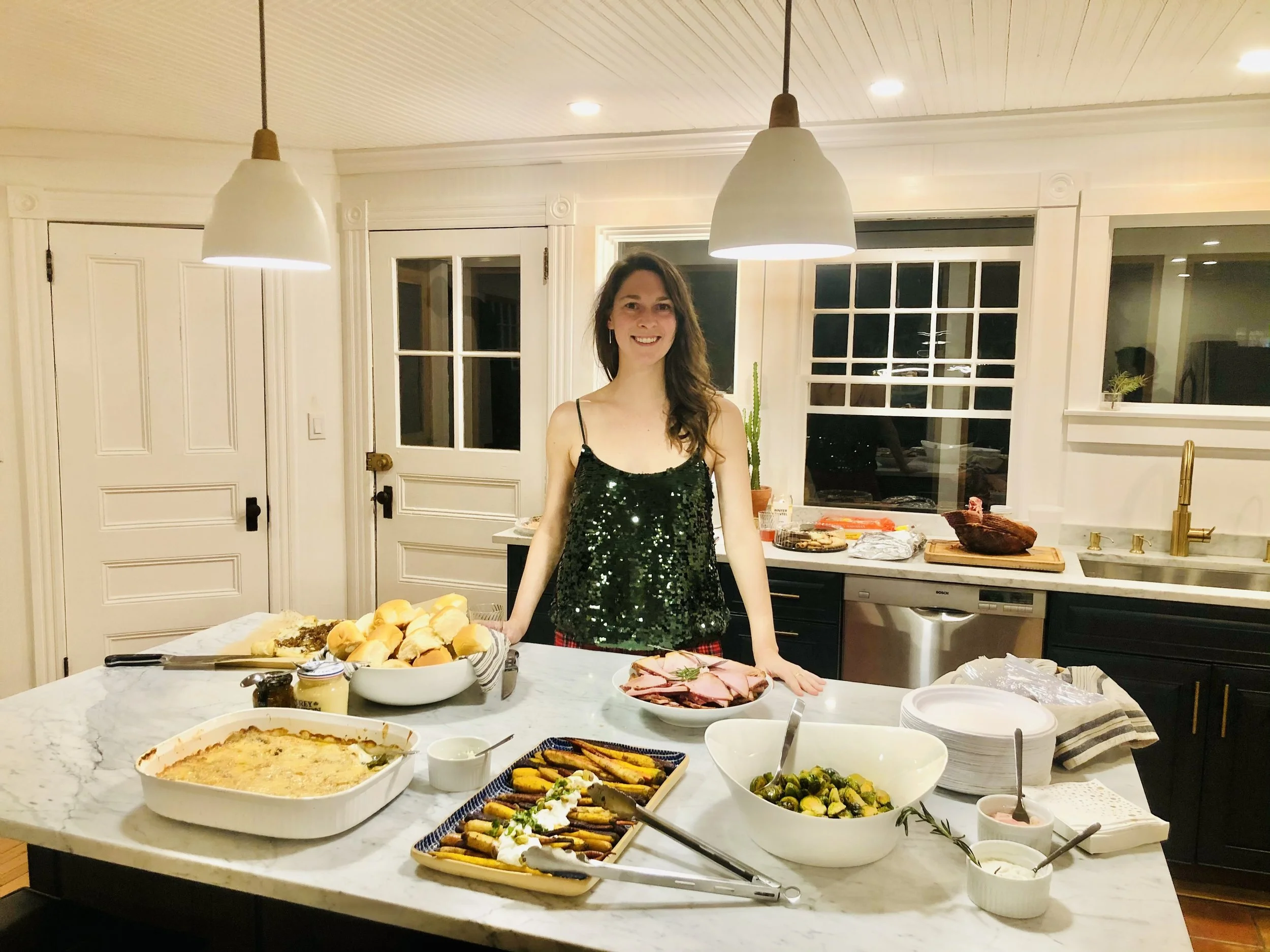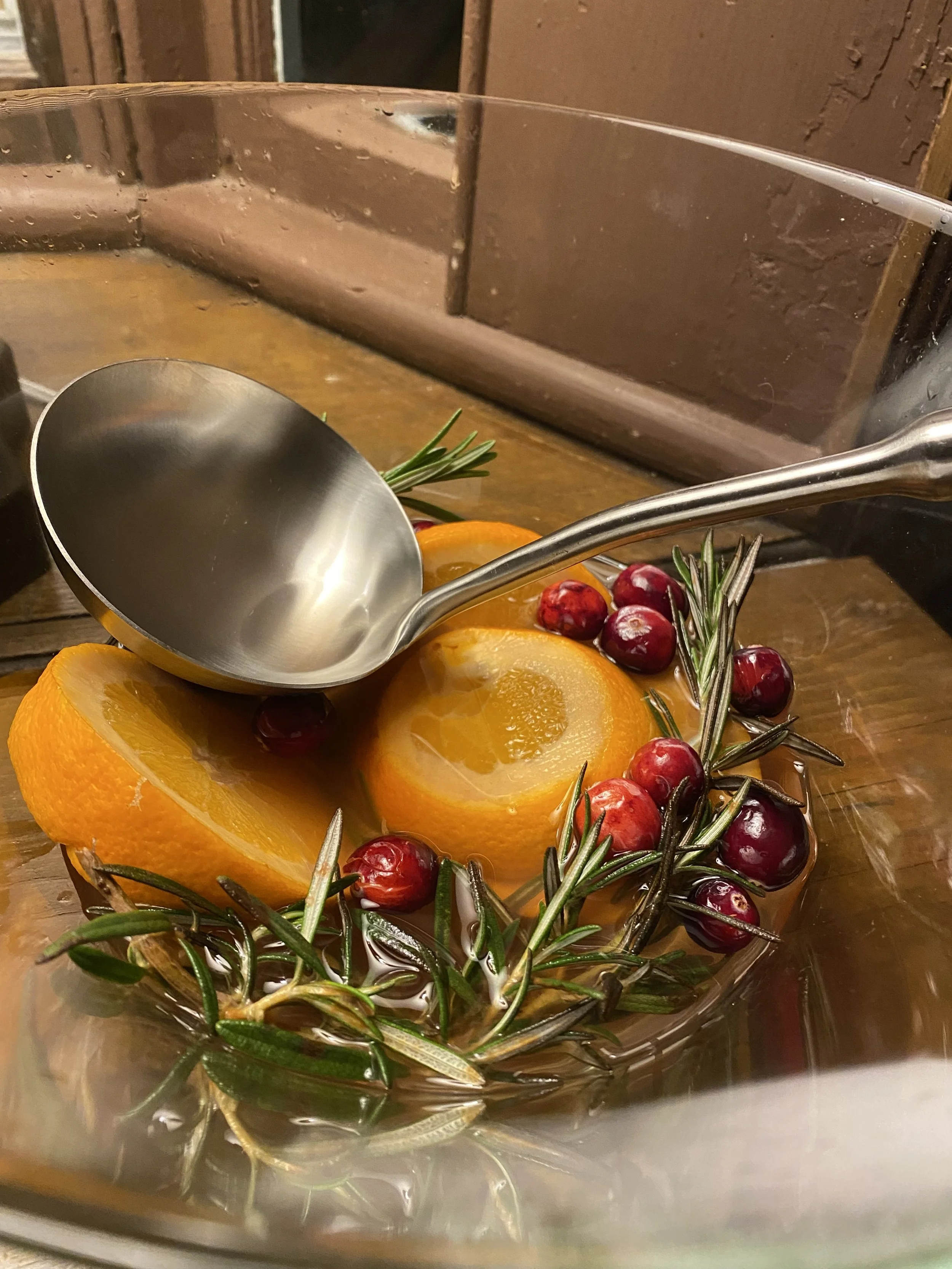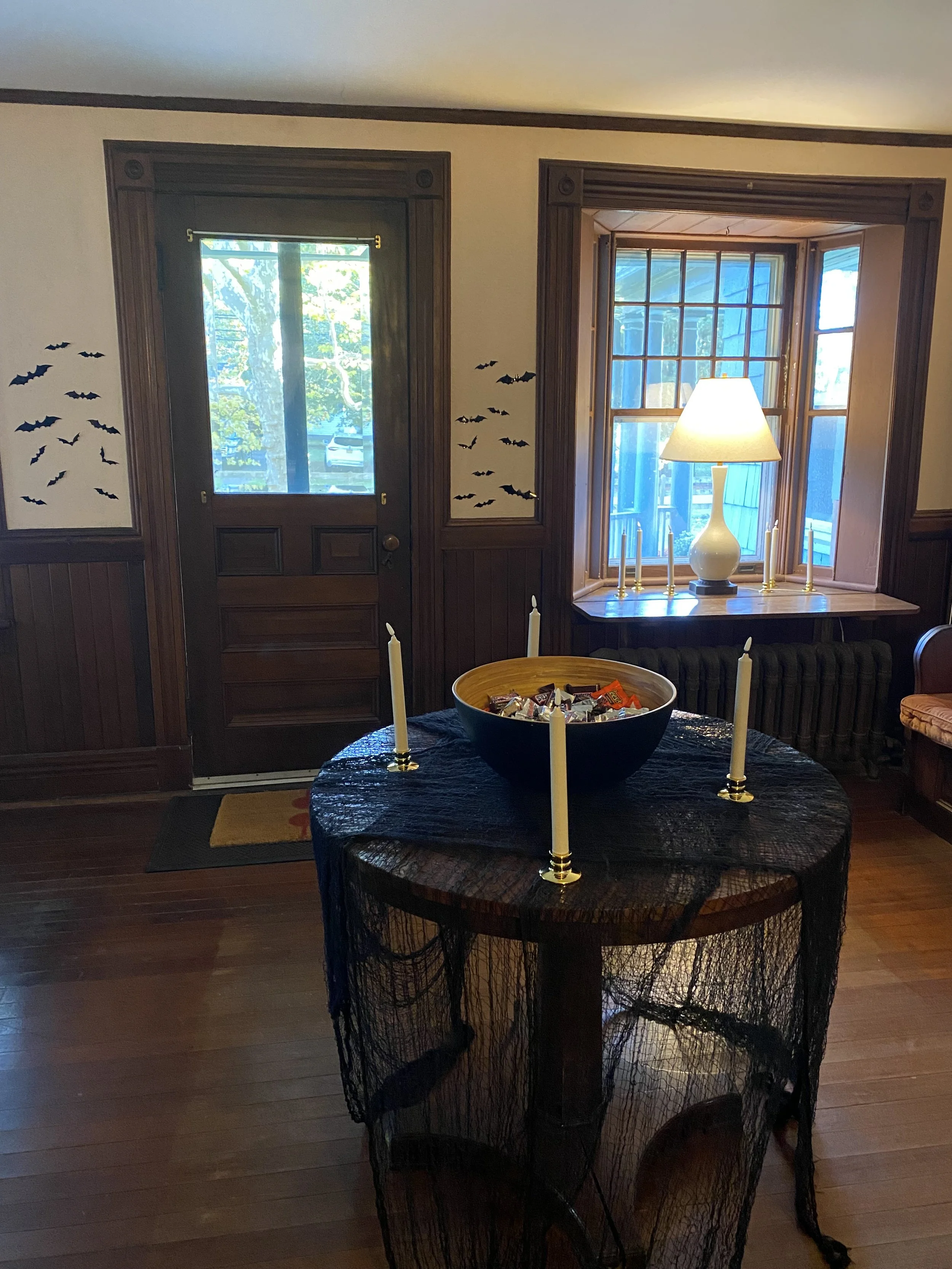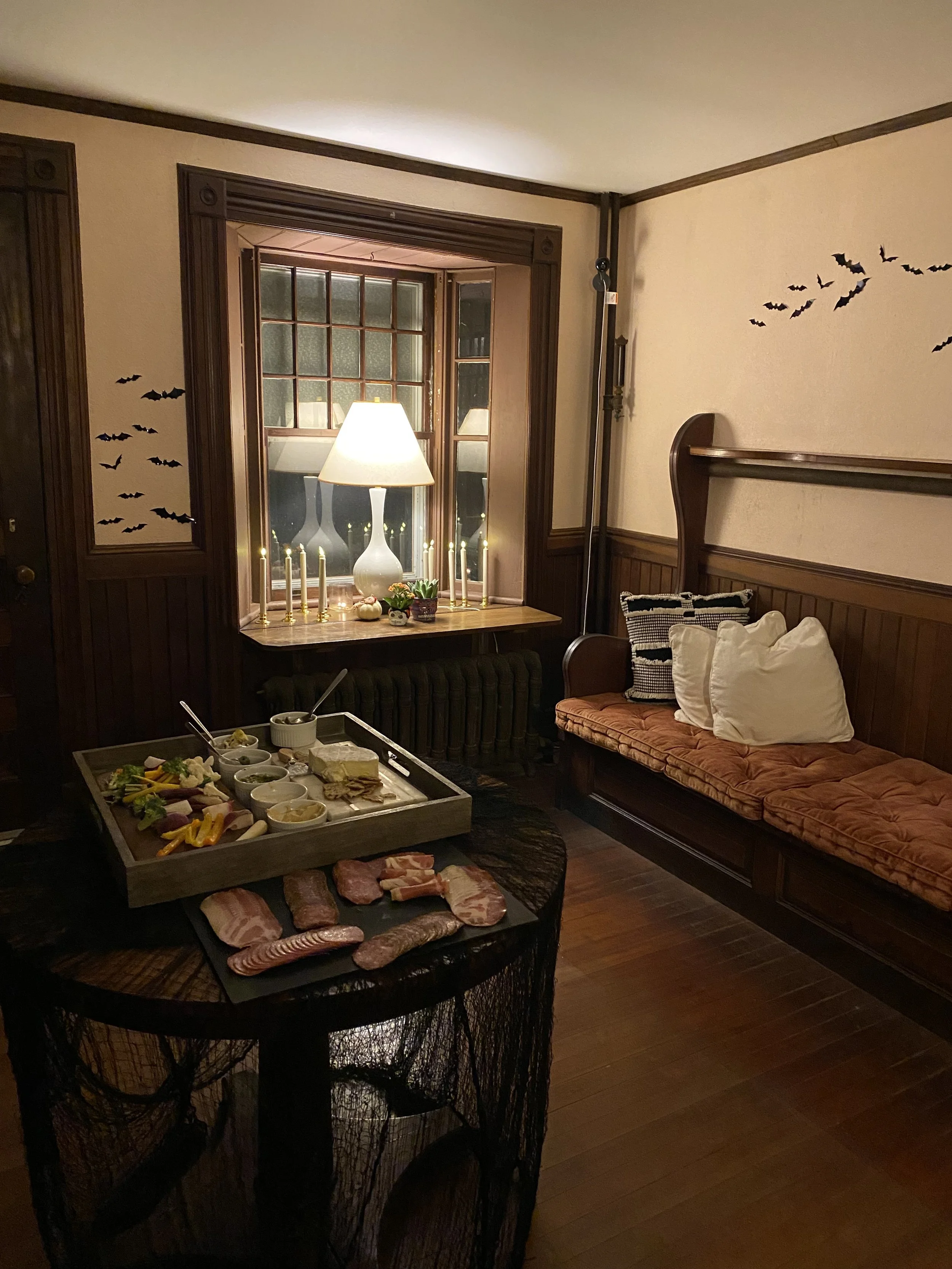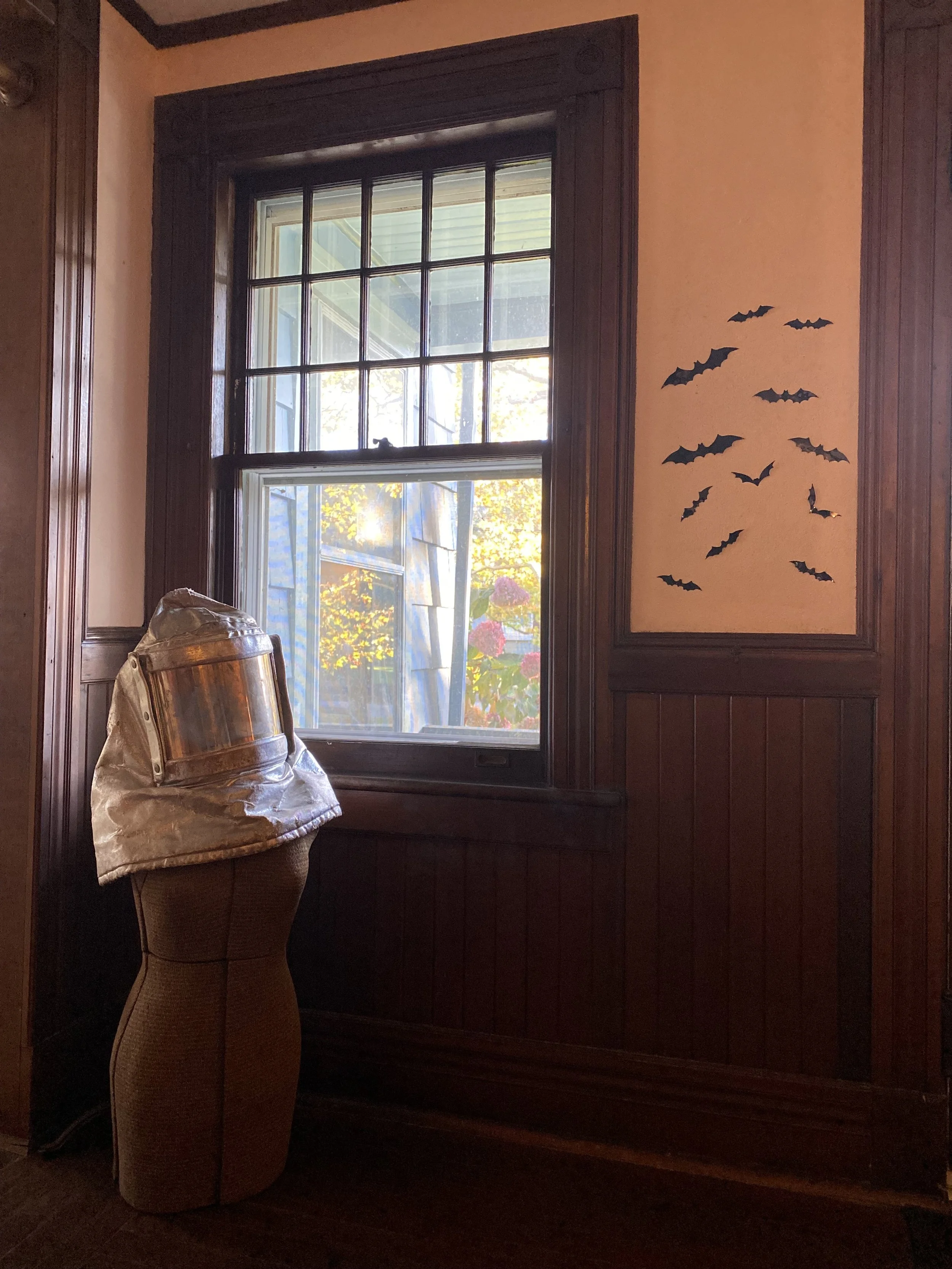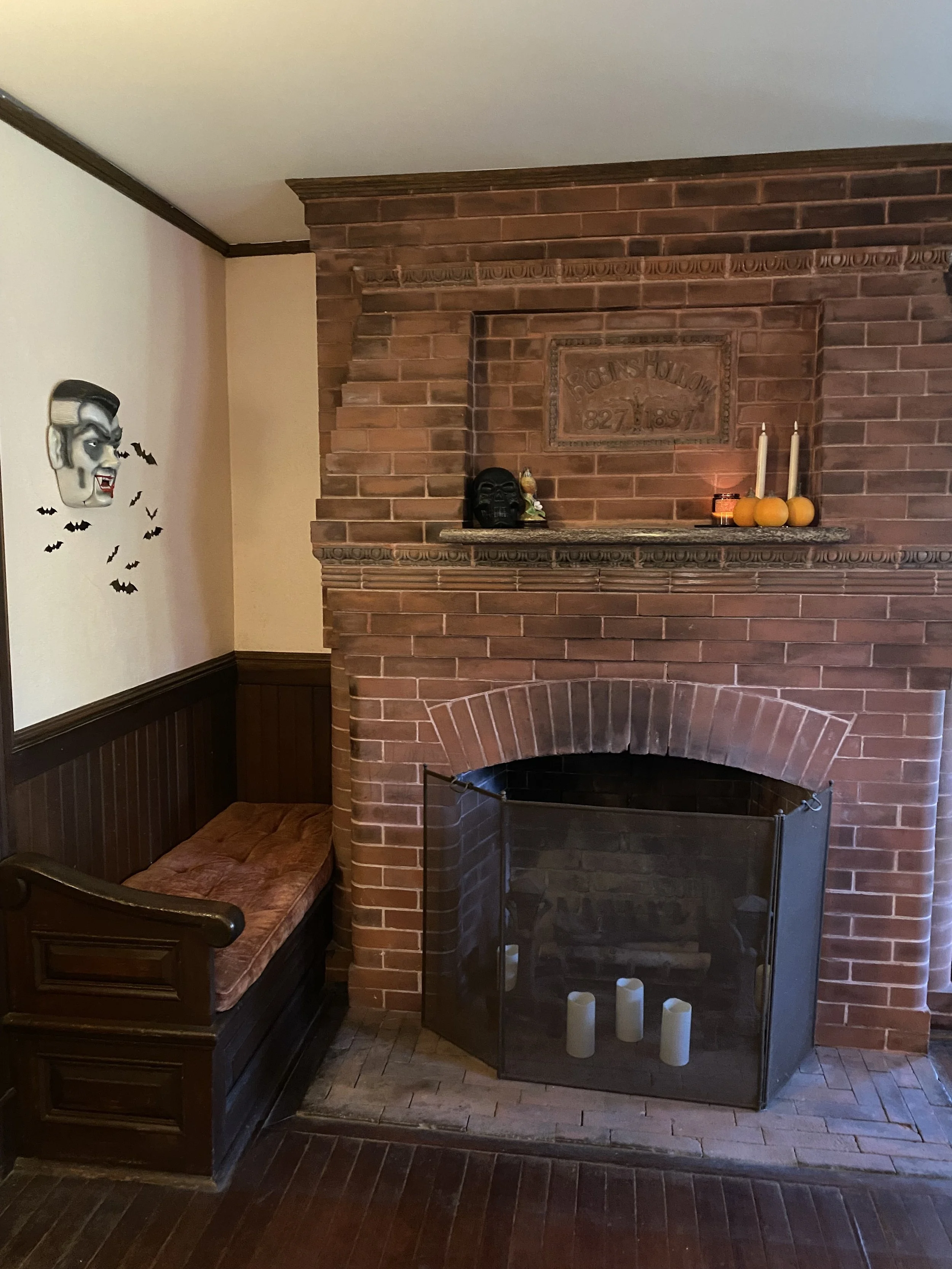The Heritage of Hosting: Why You Shouldn’t Wait to Welcome Guests
Robins Hollow, Fall 2025
The measure of an old house isn’t its perfection; it’s the life it holds.
When we bought Robins Hollow, we didn’t imagine turning it into a bed-and-breakfast — though you’d be surprised how many people ask. (During the pandemic, a family I used to nanny for actually reached out to see if we had “availability.”)
From the road, the house looks grand. But inside, it’s all human scale: cozy rooms, creaking hallways, and doors that don’t always latch but still keep secrets. It’s not a museum. It’s a home meant to be lived in — filled, occasionally spilled into.
We bought it to host. Family, friends, and the occasional neighbor who wanders up the drive holding brownies, freshly caught tuna, or a story. And like any good old house, it seems to return the favor — inviting people to gather, linger, and add their own chapter to the legacy.
⸻
The Family House, Not a Museum
Robins Hollow was built to welcome. You can see it in the details: the millwork on the third floor, as fine as any in the main rooms, meant for live-in help; the double parlors that flow like an open invitation; the wraparound porch that practically insists on a chair and conversation.
We’re the fifth family to own this house. The Horton-Daytons lived here for nearly a century and a half before passing the baton to new caretakers. I like to imagine their dinner parties — a roast, a round of toasts, and a spirited debate about whether electricity would ruin the night sky or women should have the vote.
The old glass-tube switch box in our basement still hums with that first spark of modernity — proof that progress, like conversation, found its way here in time.
Hosting isn’t new here; we’re just carrying the thread forward. The continuity itself feels like the soul of stewardship. The house doesn’t need perfection — it just needs to stay in use.
⸻
The Quiet Art of Making Guests Feel at Home
One of my favorite parts of hosting is asking guests the next morning, “How did you sleep?” It’s not small talk — it’s a quiet litmus test of care. A good night’s sleep means the mattress was just right, the air cool but not cold (a small miracle in a drafty Victorian), and the crickets kept decent time.
We’ve built our guest rooms with that in mind — fresh linens, soft light, and, most importantly, good pillows. Once, a friend who’s stayed at Robins Hollow many times texted in distress after her first night in a rental nearby: “Can I borrow some of your pillows? These feel like sandbags.”
I delivered four, and she returned the favor with a bouquet of dahlias from Latham’s. It was the perfect exchange — comfort traded for color, both given freely. That’s the essence of good hosting: generosity without grandiosity. A place where people feel they can breathe.
⸻
Cooking as an Act of Stewardship
Sean’s birthday weekend, Fall 2022 — and his prized jamón, carved at last come the next spring.
Old houses teach patience, and cooking in one requires it. The oven door doesn’t quite close, the burners misbehave, and the kitchen floor slants just enough that eggs roll if you’re not watching. Still, it’s my favorite room in the house.
When guests visit, we cook together. Some weekends we start with omelets and end with chili, slow-cooked and eaten by candlelight. In summer, it’s frittatas and garden tomatoes; by fall, overnight oatmeal, braised meat, and warm bread.
There are incredible caterers out here, but we’ve always preferred to cook ourselves — even when the guest list tips past a hundred. It’s chaotic, sure, but there’s something deeply personal about knowing the food you’re serving came from your own hands. Stirring a pot with friends, tasting as you go, passing a glass of wine across the counter — that’s where the night begins.
By the time the last plate is washed (and yes, we wash them ourselves), the room feels fuller — not just from the meal, but from the shared effort that made it.
Hosting, like caretaking, isn’t about performance. It’s about participation.
⸻
The Game Room and the Joy of Participation
Robins Hollow Game Room
The “library” came with shelves of old books and the faint smell of pipe smoke. We’ve since turned it into our game room — a mix of billiards, board games, and laughter that bounces off the woodwork.
We’ve learned to keep a few sure things on hand — games that entertain everyone from toddlers to grown-ups: a basket of Magna-Tiles and a magnetic dartboard (mercifully kind to our 200-year-old wainscoting).
Sean found the pool table at a tag sale for $100 — the deal of the century until we learned what it costs to move, refelt, and relevel one. Still, it was worth it. Watching our cousins stay up until midnight, insisting on “just one more game,” was proof that the room’s purpose had been restored.
Every house needs a space like that — one that trades reverence for joy.
⸻
Hosting Through Imperfection
Holiday party, 2023. Beware the Robins Hollow punch bowl at a party - Sean doesn’t mess around.
We’ve had dinner parties where the stove quit halfway through the main course, and the long-awaited holiday au gratin never cooked. One Halloween, we cooked for fifty and discovered the fine line between being prepared and provisioning for winter — we ate pulled pork in one form or another for the better part of a year.
Our neighbors, patient witnesses to both extremes, now say, “We’ll come for drinks at eight — and dinner if it’s before ten.”
That’s the truth of living in an old house: it’s never “ready.” The patio still needs restoration. The powder room looks exactly as it did when we moved in — light fixtures, mirror, and all. The kitchen still lacks a hood, so we regularly set off our own fire alarm.
If we’d waited for perfection, we’d still be waiting.
Our first real gathering at Robins Hollow was on the front porch during the pandemic — separate cheese trays, six feet apart, and the hesitant warmth of neighbors we’d only ever waved to before. Each of us secretly hoped we’d found new friends. Those hopes turned into one of our dearest friendships.
That night taught us what every old house knows: life happens in the meantime.
⸻
The Robins Hollow Guest Planning Checklist
How to be ready for guests — whether they’re planned or just dropping by:
Keep good tea, wine, and sparkling water on hand.
Stock easy snack-board essentials: gherkins, stuffed grape leaves, crackers, cheese, nuts, and dried fruit.
Freeze some cookie dough — nothing warms a kitchen faster than cookies in the oven.
Keep one or two bud vases ready to fill with garden blooms (or greenery in winter).
Light a candle before guests arrive — the fastest way to make any room feel like welcome.
Small rituals, ready at a moment’s notice. Because hospitality shouldn’t depend on having time to prepare — only the intention to care.
⸻
Reciprocity in Action
Lately, we’ve noticed more handwritten notes, small gifts, and quiet gestures from guests — a bottle of wine, a favorite cookbook, a note sent by post. Those moments of reciprocity are their own form of beauty — proof that the care you give a place ripples outward.
Hospitality, at its heart, is about exchange. You give warmth; it gives it back. You open the door; people bring life through it.
That’s what keeps an old house alive.
⸻
Don’t Wait to Host
Robins Hollow Halloween, 2022.
When you’re restoring a historic home, it’s easy to fall into the trap of someday. Someday we’ll repaint. Someday we’ll replace the stove. Someday we’ll have the perfect dining table and chairs.
But the truth is: the house will never be done. It will only ever be alive.
So set the table. Light the candles. Invite the people you love. You’ll remember the laughter, the food, the slight chill by the window — not the unfinished trim.
Hosting is heritage work. Every dinner, every overnight guest, every shared bottle of wine becomes part of the record of care.
And that, more than any restoration, is what makes a house a home.
⸻
Your Chapter in the Ledger
The record of a house is written in the gatherings it holds. What’s one memory, tradition, or moment of welcome that’s become part of your home’s story?
Share it below — we’d love to add your chapter to the conversation.

